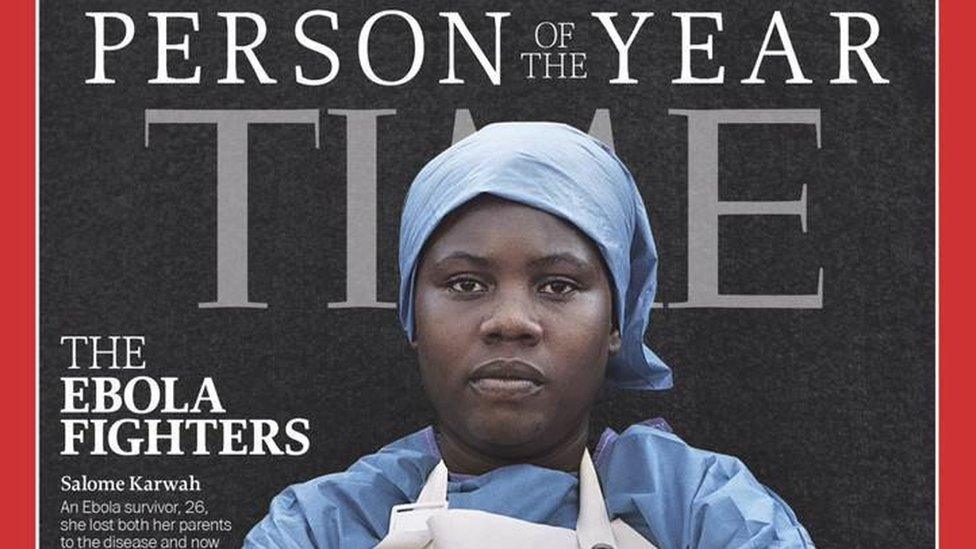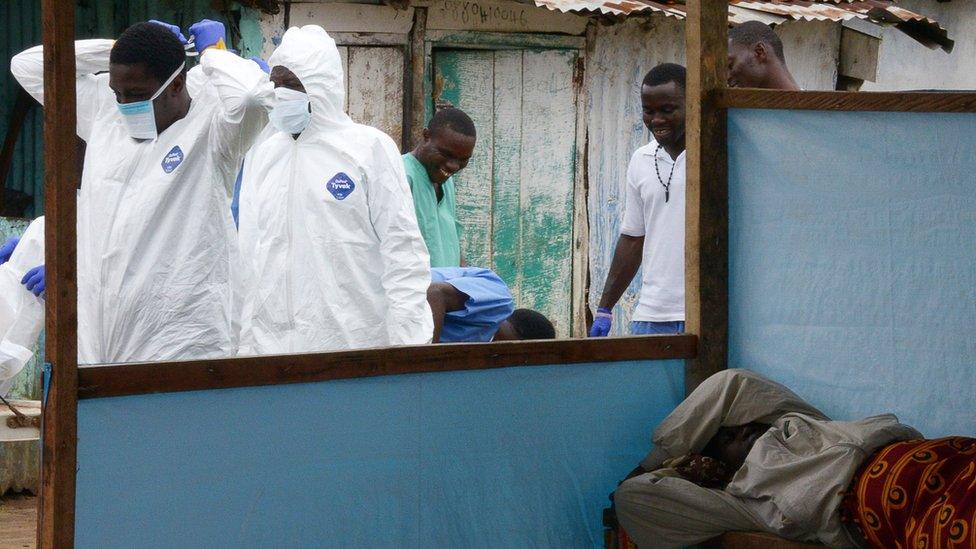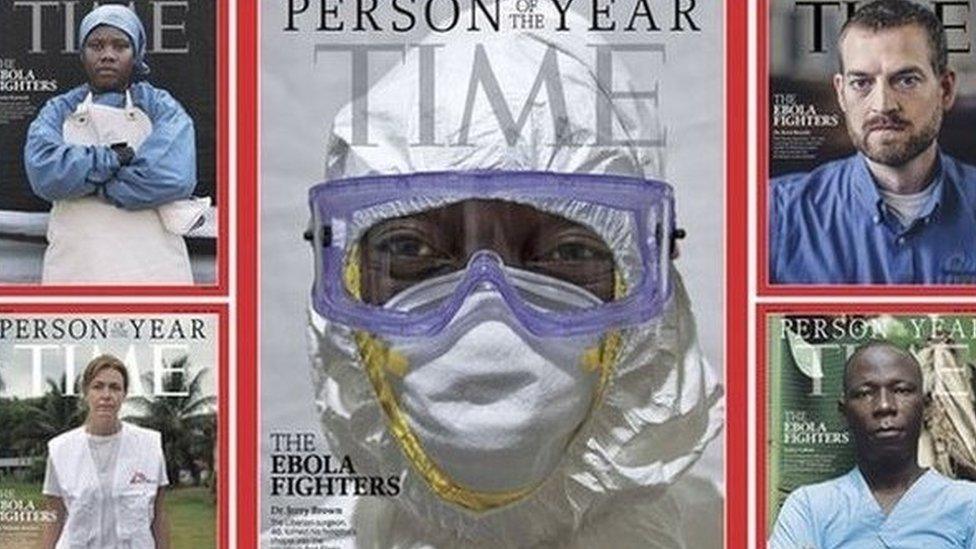Ebola nurse Salome Karwah died after hospital neglect, husband says
- Published

Salome Karwah is survived by her husband and four children
Liberian nurse Salome Karwah was one of those named as Time magazine's person of the year in 2014 for her frontline work against Ebola.
She died in Monrovia last week after giving birth to a son.
Her husband told the BBC that nurses were unwilling to touch her for fear of contracting Ebola - even though she recently tested negative for Ebola.
The hospital has not commented, and officials say they are investigating the death.
James Harris said his wife had given birth to their fourth child by Caesarean section on 17 February - but had to be rushed back to hospital after suffering complications.
They were kept waiting in their vehicle for three hours because the nurses were afraid to touch her, Mr Harris said.
"I personally went into the emergency ward to bring a wheelchair to take my wife into the operation room.
"What really hurt me was a nurse on duty, instead of attending to the emergency, was standing by the front counter busy on Facebook," he said.
He believes health workers did not act with more urgency "because she was an Ebola survivor and maybe they thought she still had Ebola".
He also alleged that the hospital had discharged her early after the Caesarean, even though "her blood pressure was high".
'Extraordinary woman'
Health officials confirmed the case was being investigated.
"The investigation is ongoing, there is not much I can say. As it is now, it is kind of scanty to come out with anything, we have to do a thorough investigation," Liberia's Chief Medical Officer, Dr Francis Kateh, told the BBC.
"We understand the condition of the husband. He's feeling bad and so forth, but at the same time we have to be careful."
"The hospital knew she had Ebola and they operated on her which put them at more risk," he added.

Salome's case highlights the stigma that still surrounds the disease
Mr Harris said his wife had lost many relatives to Ebola including her parents but she survived and had benefited from a US-Liberian vaccine regime.
All recent tests that she had taken had come back negative, he added.
Liberia was one of the three West African states devastated by the 2014 Ebola outbreak. Even before the epidemic, and after 14 years of brutal conflict, the country's healthcare system was in crisis.

Time Magazine's 'People of the Year' magazine cover for 2014
Speaking on the BBC's Newsday programme on Wednesday, Time Magazine's Africa Editor, Aryn Baker, described Salome Karwah, whom she had met, as "an extraordinary woman" who had gone back to the clinic where she had been treated as living proof that Ebola could be beaten.
Before Ebola happened, there were only about 50 doctors working in the entire country, Ms Baker added.
The BBC's Jonathan Paye-Layleh in Monrovia says that more than two years after the Ebola crisis which exposed the weakness of the health sector in Liberia, healthcare delivery is still faced with a huge challenge and is almost nonexistent in most of the country.
It was thought that international intervention during the Ebola fight would culminate into the building of a stronger health sector; but the situation is so bad that those who can afford to still have to travel abroad to seek medical attention, our correspondent adds.